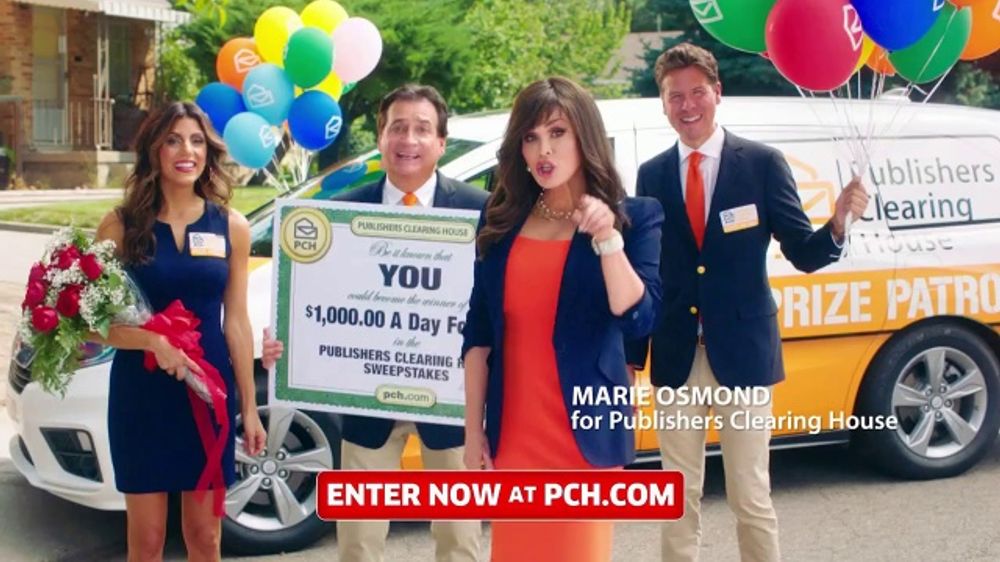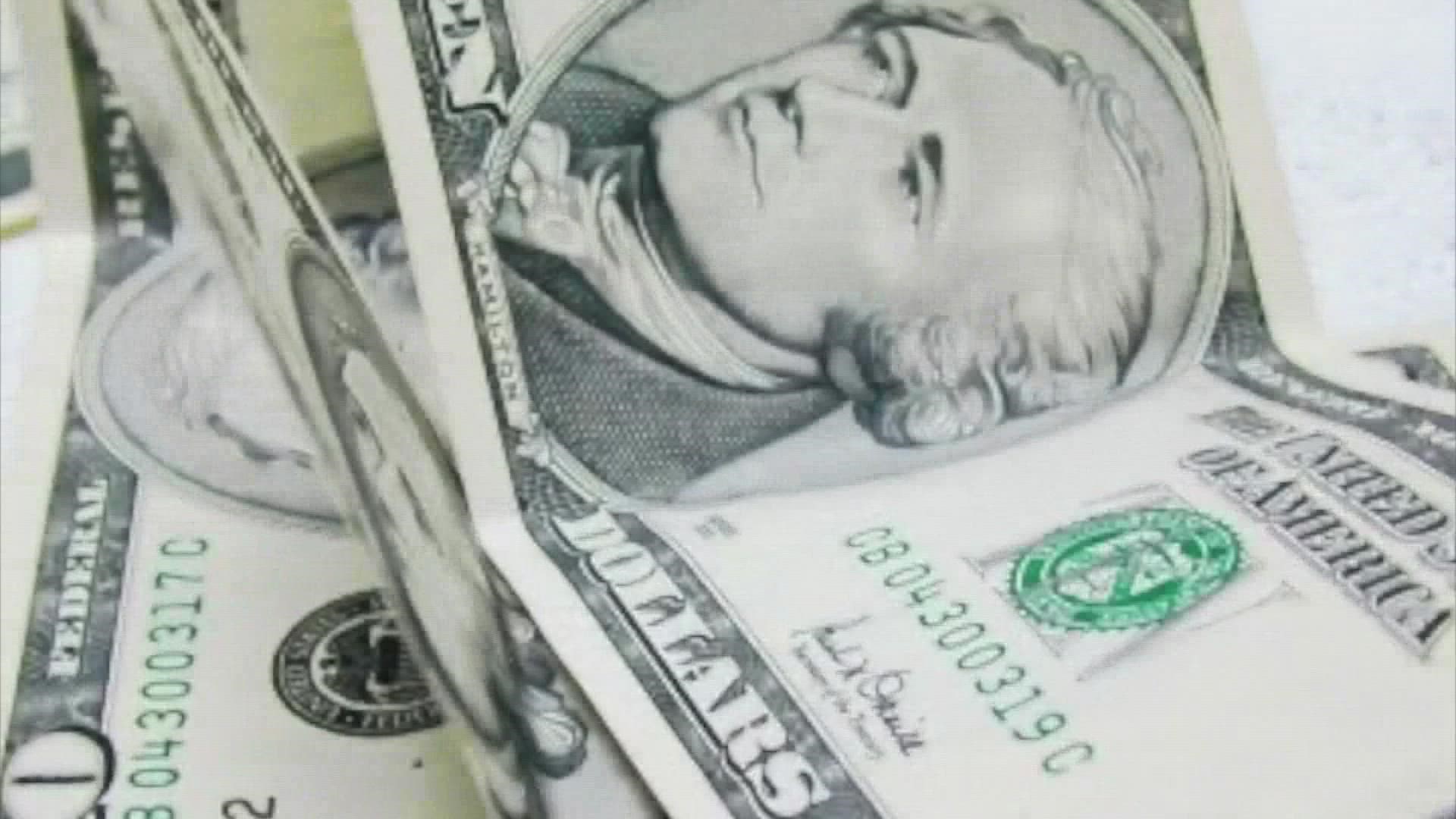Table Of Content
- PCH is Fighting Back Against Fraud!
- Beware of Fraudulent Emails
- Ways Decluttering Your Home Saves You Money, According to Frugal Living YouTuber Kate Kaden
- Leave your comment Cancel reply
- Tip 4: Be Wary of E-mails Claiming You’ve Won – and Asking You to Send Money
- Publishers Clearing House Phone Call Scam Targets Victims

If you believe you are eligible for a refund, there is nothing you need to do. When we have more information about the refund program, we will post updates here and provide information directly to consumers who are eligible for a refund. The FTC’s complaint charges that where PCH included disclaimers or clarifying information on shopping pages, it was in small, light font, below the “call to action” buttons, and overlooked by consumers. On that note, let’s take a moment to talk about the kinds of PCH impersonator scams that our fans might encounter. Publishers Clearing House wants to warn you about scam artists pretending to be the Publishers Clearing House Prize Patrol or other PCH employees on social media platforms like Facebook, Instagram and Twitter. I get this one (PCH) at least once a week and it is always the same story "call Mr xxxxx " to claim your winnings and pay the $500 Dollar processing fee.
PCH is Fighting Back Against Fraud!
I suspect that's the reason they seem so hard pressed to sell all that stuff. PCH is also notorious for already populating an item in your cart without your knowledge for purchase... PCH back in 1980 to 2023 I join PCH and paid for products from the PCH catalog and never wond anything. In the event that PCH does contact a winner, it will be one who won $10,000 or less, and that will typically be done via an overnight express carrier such as UPS, FedEx or USPS Express Mail. PCH was a founding corporate member of the National Public/Private Fake Check Task Force sponsored by the National Consumers League and Consumer Federation of America.
Beware of Fraudulent Emails

Using a variety of bogus representations including "prepayment of taxes," "refundable deposits," and "shipping &handling," scam artists perpetrating these frauds seek to have consumers forward money. In May 2022, Google and Twitter users were searching for answers after receiving phone calls from scammers who claimed to be affiliated with the Publishers Clearing House (PCH) sweepstakes. The reality here was that the company only notifies winners of their prizes by visiting them in person with their PCH Prize Patrol. They never award prizes over the phone, on social media, in email, or through the mail. If you receive a telephone call from someone claiming you have won a sweepstakes prize and are asked to send money — STOP — you have not heard from a legitimate sweepstakes company.
Ways Decluttering Your Home Saves You Money, According to Frugal Living YouTuber Kate Kaden
Learn about the latest Publishers Clearing House scams. PCH — famous for surprising winners at their front doors with giant checks and balloons — must substantially change its business practices, the FTC said. Calling ahead or requests for payment of any kind — such as shipping fee, tax, or deposit — are telltale signs of fraud. PCH provides customers with assistance and can answer any sweepstakes questions you may have. If you wish to report a scam contact to us, you may do so by clicking here to fill out and complete a scam incident report. Recognizing the difference between legitimate sweepstakes and other types of offers that may not be legitimate will help you protect yourself and your family.
Police warn of scam calls claiming to be from Publisher's Clearing House or Mega Millions - WECT
Police warn of scam calls claiming to be from Publisher's Clearing House or Mega Millions.
Posted: Mon, 12 Feb 2024 08:00:00 GMT [source]
Best High-Yield Savings Accounts Of 2024
PCH would never request you send money to claim a prize and we never notify major prize winners by phone or mail. The Federal Trade Commission works to promote competition and protect and educate consumers. The FTC will never demand money, make threats, tell you to transfer money, or promise you a prize.
The second is that the scammer will go as far as to send you a fake check. However, in the United States, sweepstakes sponsors will need to send the winner an affidavit prior to sending any check over $600. Thus, if you have not received an affidavit, there is a good chance you are being set up by a fraudster. To avoid this kind of sham, it is wise to familiarize yourself with fake check scams. How do you know if a profile is the real Publishers Clearing House or a scam? First, nobody from Publishers Clearing House will ever send friend requests to you on Facebook.
Leave your comment Cancel reply
At PCH we include a Sweepstakes Facts insert in every promotional offer we send. Be sure to read the Sweepstakes Facts, as well as our Official Rules. They are there to provide you with all the information you need to play safely! Don’t fall for ‘lookalike’ mailings that try to mislead consumers by imitating legitimate sweepstakes.
Do NOT use the telephone numbers or email addresses included in your win notice when you do this step — scammers often include fake contact information to trick their victims. For example, if you call a number in your win notice, you might reach the scammer, not the legitimate PCH organization. Publishers Clearing House sweepstakes are legit, but not every win notification from them is. Many scammers misuse the PCH name, pretending to come from the company when they really come from someone hoping to steal your money or your identity. Some of those scams are sophisticated enough to make it difficult to tell if you've really won or not.
The Publishers Clearing House scam is a type of sweepstakes scam in which fraudsters impersonate company representatives and claim you’ve won a prize. If you think you’ve won a prize from Publishers Clearing House (PCH), you need to be especially careful with how you proceed. In this guide, we’ll explain how PCH scams work, the red flags to look out for, and what to do if you’ve sent money or information to scammers.
Scammers aren’t just reaching out via phone calls. People have reported receiving letters claiming they won the PCH sweepstakes. In Minnesota, one letter said that the recipient had to pay $15,000 in taxes to claim their multimillion-dollar prize, AARP reported. First they copy images and content from the PCH Prize Patrol official Facebook account.

Thankfully, a number of people came to the rescue and told the user to stop communicating with the scammers. The user later appeared to confirm getting out of the situation ok. Publishers Clearing House began in 1953 as a service that hawked magazine subscriptions.
Responding to competitors, the company began to entice homeowners by offering them “sweepstakes” — chances to win tens of thousands and then millions of dollars. If you've already sent money to a PCH scammer, contact your local police office. You'll also need to be extra cautious in the future because scammers consider people who have already been scammed to be easy prey, and there's a good chance that you will be targeted again. Publishers Clearing House works diligently to fight scams, both by working with law enforcement officials and through public education.
Second, the PCH Prize Patrol members (Danielle Lam, Dave Sayer, and Howie Guja) and PCH employees do not send private messages on Facebook, Twitter or Instagram. Third, Publishers Clearing House does not notify our winners through Facebook, Twitter, Instagram or any other social media website. Finally, if you ever receive a message or contact asking you to send any money to claim a prize IT IS A SCAM.
The scam starts with a call or letter saying you’ve won the Publishers Clearing House sweepstakes. But to collect your prize, they say, you need to send money to pay for fees and taxes. Typically you’ll be asked to send money by Western Union or MoneyGram, or by getting a reloadable card or gift card.
Publishers Clearing House created Prize Patrol in 1989 to notify winners of major prize awards (including SuperPrize winners) in person instead of calling them. Prize Patrol is a team of employees headed by Dave Sayer that also delivers prizes rather than hire actors for that. “I`m calling to let you know that you are the second prize winner in our big sweepstakes for $2.5 million,” Guthrie said. When the caller said all that, Guthrie started taking notes. The person on the phone gave her a badge number and told her to go to the nearest Walmart or Walgreens to prove her identity through money gram. It did so using what the FTC calls “dark patterns,” referring to “manipulative phrasing and website design,” to manipulate people into spending money.
I have been buying and dealing with PCH for more than 20 years. "As part of a settlement, PCH agreed to pay $18.5 million, among other things." Tells people your chances are better if you buy something. I learned from all these years buying from PCH that this is not true at all. I'm guessing that the money comes from the money they make off of the purchases they try to get everybody to make.

No comments:
Post a Comment